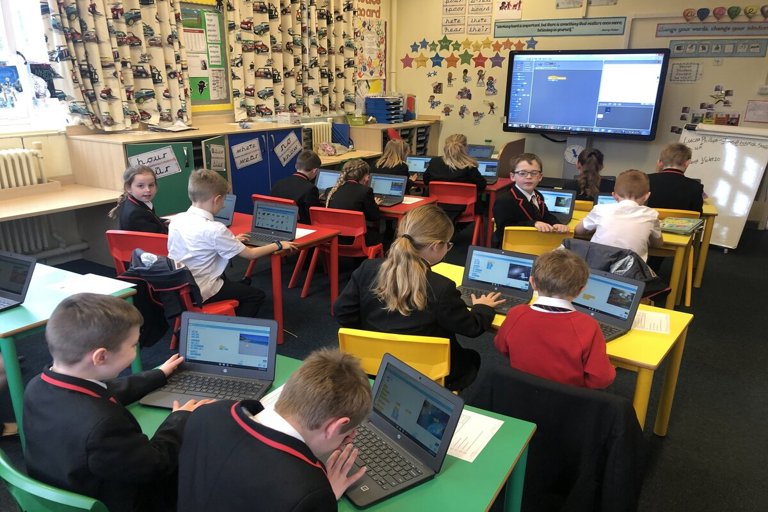Education & Learning
South West Schools Integrate Coding into Primary Curriculum
Teachers report positive responses as coding becomes part of daily lessons, preparing children for future careers in technology and digital industries.
2025-08-25 03:11
By Laura Mitchell

Primary schools across the South West are introducing coding lessons into the classroom, aiming to equip children with digital skills from an early age. The initiative, supported by local education authorities, reflects a growing recognition that coding is as essential as literacy and numeracy in preparing students for the modern workforce.
Teachers in Plymouth, Exeter, and surrounding areas report enthusiastic responses from pupils. Using colourful block-based coding tools, even seven-year-olds are learning to create animations and simple games. Educators say the approach builds problem-solving skills, resilience, and teamwork, while also sparking creativity in ways that traditional lessons often cannot.
Headteachers argue that early exposure to coding levels the playing field for children who might otherwise miss opportunities to engage with technology. Schools in disadvantaged communities are being prioritised, with grants provided for laptops, tablets, and interactive whiteboards. The goal is to prevent a “digital divide” from widening further between students.
Partnerships with tech companies are helping schools implement the changes. Bristol-based software firms have donated resources and organised volunteer mentors who visit classrooms to run workshops. These partnerships not only give students practical insights into how coding is used in the real world but also inspire them to consider future careers in technology.
Teachers themselves are undergoing training to ensure confidence in delivering the new subject matter. While many educators admit they initially felt intimidated, training sessions and peer-to-peer support networks have given them the tools to guide lessons effectively. As one teacher explained, learning alongside pupils has created a sense of shared discovery that strengthens classroom dynamics.
Parents have welcomed the move, noting that children are often more adept with devices than adults. Many families see coding as a practical skill that will support future employability. Some parents even report learning coding basics at home from their children, creating new avenues for intergenerational learning.
Beyond technical ability, coding lessons are being integrated with core subjects. For example, pupils use coding to animate historical stories in history classes or to simulate scientific experiments in physics. This interdisciplinary approach makes learning more engaging while reinforcing knowledge across the curriculum.
Not all voices are uniformly positive, however. Some critics worry that the focus on digital literacy may come at the expense of traditional subjects. Others point to the challenges of funding, particularly for rural schools that struggle to maintain updated equipment. Education leaders counter that coding is not a replacement but a complement, and efforts are ongoing to secure sustainable investment.
Regional universities are watching closely, hoping the reforms will create a stronger pipeline of students interested in computer science. The University of Exeter and University of Plymouth have already announced scholarships for pupils who excel in coding competitions, further incentivising schools to nurture talent from a young age.
Inspectors from Ofsted have praised the initiative, noting that children exposed to coding often demonstrate higher engagement levels and improved problem-solving abilities. Reports highlight that pupils are developing confidence not just in using technology but also in approaching challenges across other subjects.
Looking ahead, policymakers hope the South West’s approach could become a model for national reform. If successful, coding lessons may soon be a fixture in every primary school across the UK. For now, children in the region are leading the way, discovering that writing lines of code can open doors to creativity, confidence, and a digitally empowered future.